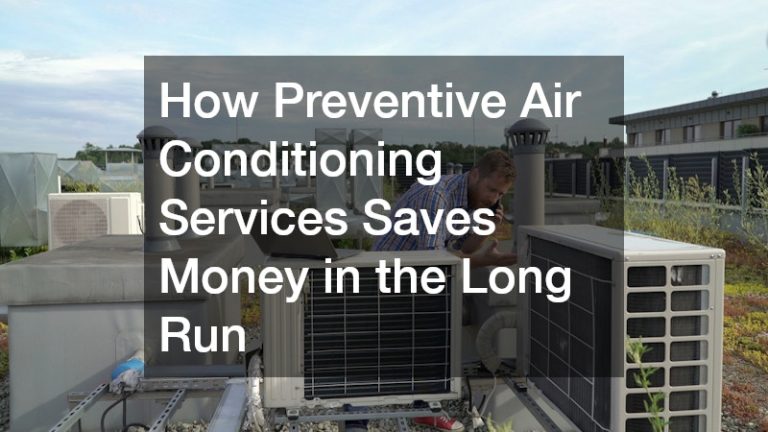In an era where environmental considerations are becoming increasingly crucial, the demand for efficient climate control systems has soared. Heating, Ventilation, and Air Conditioning (HVAC) systems not only enhance comfort but also play a significant role in energy conservation, indoor air quality, and overall health and safety in both residential and commercial spaces. As concerns over energy consumption and sustainability grow, the HVAC industry is evolving to incorporate cutting-edge technologies such as smart thermostats, energy-efficient heat pumps, and eco-friendly refrigerants. However, the effectiveness of these systems heavily relies on the skills and expertise of HVAC contractors, who ensure they function optimally and comply with industry standards. These professionals are responsible for a wide range of tasks, including installations, routine maintenance, emergency repairs, and complex system upgrades. With specialized training and knowledge, HVAC professionals work to improve system efficiency while reducing environmental impact. This article delves into the importance of HVAC professionals, their daily responsibilities, and how their work is shaping the future of climate control in our increasingly technology-driven society.

The Role of Skilled Professionals in Climate Control
HVAC contractors are the backbone of the heating and cooling industry, ensuring that residential, commercial, and industrial spaces maintain optimal climate conditions. Their work spans a broad spectrum of tasks, including system installation, routine maintenance, emergency repairs, and performance optimization. These skilled professionals play a crucial role in enhancing energy efficiency, reducing operational costs, and promoting healthier indoor environments. Whether working on air conditioning units in homes or large-scale heating systems in office buildings, their expertise is indispensable for maintaining air quality and thermal comfort. Additionally, HVAC contractors must stay up to date with changing regulations and technological advancements, such as smart climate control systems and energy-efficient designs, to provide the best solutions to clients.
In the realm of HVAC, the variety of jobs is vast, catering to diverse sectors and specialties. Some HVAC professionals focus on residential services, ensuring families enjoy efficient and reliable climate control in their homes. Others specialize in large-scale commercial and industrial systems, which often involve complex ductwork, refrigeration units, and advanced automation technologies. These larger installations require specialized skills, including knowledge of building codes, load calculations, and sophisticated control systems. Additionally, some HVAC technicians work on niche areas such as refrigeration, geothermal heating, and solar-powered HVAC systems, expanding the industry’s reach into renewable energy solutions.
The demand for different HVAC jobs is continuously increasing as technology advances and environmental regulations become stricter. With sustainability becoming a priority, HVAC professionals must integrate energy-efficient technologies and environmentally friendly refrigerants into their work, creating a strong demand for skilled workers. This growth has opened numerous career opportunities, ranging from entry-level technicians to highly skilled engineers and system designers. Many professionals find rewarding career paths within the industry, with options for certifications, apprenticeships, and continued education to advance their expertise. As HVAC systems continue to evolve with new innovations, the work of contractors remains not only essential but also highly valued in promoting energy conservation and sustainable development.
Mastering the Art of System Setups
HVAC installations are intricate processes that require a deep understanding of both the systems and the environment in which they are installed. The success of these installations hinges on the ability to assess the space’s specific needs, ensuring that the HVAC system functions efficiently and meets the unique requirements of the environment. HVAC professionals must take into account factors such as air circulation, energy usage, insulation, and even the climate conditions of the region. As part of their responsibilities, HVAC experts must carry out careful planning and precise execution, ensuring that the system operates at peak efficiency while also adhering to energy-saving guidelines. This attention to detail helps prevent future issues and maximizes the system’s long-term performance, ultimately providing cost savings and enhanced comfort for the occupants.
Different HVAC jobs encompass a series of installation-related tasks that cater to diverse sectors. For instance, residential installations may involve retrofitting older homes with modern HVAC technology to improve efficiency and indoor air quality. These retrofits often require adapting existing infrastructure to accommodate more energy-efficient units, ensuring the system aligns with modern environmental standards. Meanwhile, commercial setups typically demand tailored solutions that accommodate the unique architectural and operational requirements of business spaces. For instance, office buildings, retail stores, and industrial facilities each present their own challenges, such as dealing with large spaces, varying heating and cooling needs, and incorporating sophisticated control systems.
As technology progresses, the expertise required for HVAC installations evolves. Today’s technicians must be proficient not only in traditional systems but also in smart technologies, such as integrated climate control and automation. There is a growing emphasis on reducing carbon footprints, so HVAC professionals must stay updated on environmentally friendly solutions, like the use of energy-efficient heat pumps, geothermal heating, and eco-friendly refrigerants. Thus, keeping abreast of industry advancements, certifications, and emerging technologies is crucial for professionals in various HVAC jobs. This ongoing learning ensures that HVAC contractors remain at the forefront of providing sustainable and innovative solutions for all types of installations.
Ensuring Clean Air with Routine Maintenance
A vital function of HVAC systems is to improve indoor air quality, and regular hvac filter service is a critical maintenance task. HVAC professionals frequently carry out inspections and changes of air filters to prevent the circulation of dust, allergens, and pollutants. This service is paramount for maintaining health and comfort within various structures.
Different HVAC jobs involve unique maintenance tasks. Some technicians focus on routine inspections to ensure systems are running optimally, while others might specialize in advanced diagnostic services to predict and prevent potential failures. This variety in job roles showcases the adaptability required in the HVAC industry.
Regular maintenance services such as filter replacements contribute significantly to the longevity and efficiency of HVAC systems. This routine upkeep not only saves energy but also extends the lifespan of units, underscoring why skilled professionals remain indispensable in the field, consistently adapting to the evolving demands of their roles.

Troubleshooting and Fixing Cooling Systems
Air conditioning repair is one of the most critical tasks undertaken by HVAC professionals. When systems break down, swift and efficient repairs are necessary to restore comfort and functionality. HVAC technicians use their expertise to diagnose issues and implement solutions, ensuring systems return to optimal performance as quickly as possible.
The need for air conditioning repair spans across different HVAC jobs. Some technicians are experts in residential systems, while others may specialize in larger, commercial cooling units. Each job requires a specific skill set but shares a common goal: maintaining effective climate control.
In a world increasingly reliant on technology, troubleshooting and repair have become even more critical. HVAC professionals must continuously upgrade their skills to handle innovations in cooling technology, solidifying their role as vital contributors to the industry.
Providing Reliable Upkeep for Cooling Units
Air conditioner service involves scheduled inspections, tune-ups, and cleaning to ensure the smooth operation of cooling systems. HVAC professionals diligently perform these services, which are essential for minimizing the risk of system failures and prolonging the lifespan of air conditioning units.
Different HVAC jobs encompass a wide variety of service tasks. Technicians might focus on air conditioner service for residential clients, ensuring home comfort year-round. Meanwhile, others handle commercial services, addressing the needs of large-scale systems critical to business operations.
The regular upkeep of cooling units not only increases their efficiency but also reduces energy consumption and operational costs. This aspect of HVAC work is testament to the industry’s commitment to sustainability and efficiency, as professionals strive to deliver the best solutions for their clients’ climate control needs.
The Process of Setting Up New Equipment
Typically, when new HVAC equipment is required, professionals take on the challenge of executing precise HVAC installation. The setup process involves careful planning and execution, as well as a thorough understanding of both the mechanical and environmental aspects relevant to each unique space.
Different HVAC jobs related to installation can vary significantly. Some professionals may specialize in fitting new systems within homes, while others focus on large-scale installations in commercial or industrial settings. Each role requires its own set of skills and innovations to meet specific industry standards.
The introduction of energy-efficient technologies and smart systems is reshaping HVAC installation practices. Professionals in the field must stay informed about these advancements to offer top-rated service, ensuring that the final setups meet both client expectations and environmental considerations.

Keeping Homes and Businesses Cool and Functional
Air conditioner service and repair play a critical role in maintaining comfortable indoor environments for both homes and businesses. Reliable performance from air conditioning systems is crucial, especially during warm months when failure can lead to discomfort and operational disruptions.
Different HVAC jobs related to service and repair are crucial for maintaining functional cooling setups. These roles often require technicians to be on call for emergencies, ready to address unexpected breakdowns and ensure minimal downtime in cooling operations.
Regular service and timely repair of air conditioners not only enhance their reliability but also optimize their energy efficiency. This aligns with the industry’s broader goal of promoting sustainable climate control solutions, underscoring the value HVAC professionals bring to both homes and businesses alike.
Diagnosing and Resolving Common Cooling Issues
AC repair is a specialized area within HVAC services, focused on identifying and fixing common issues that affect system performance. This requires a deep understanding of the mechanical and electrical components of air conditioning units.
Among different HVAC jobs, AC repair is critical for restoring system functionality when breakdowns occur. HVAC professionals must quickly and accurately diagnose issues, ensuring disruptions are minimized and cooling is promptly restored.
By staying updated on the latest advancements in air conditioning technology and repair techniques, HVAC professionals can provide swift and effective solutions. This proactive approach is essential for maintaining the high standards of service expected by clients, and for upholding the reliability of today’s advanced cooling systems.
The Growing Demand for Temperature-Controlled Storage
Air conditioned storage facilities are increasingly sought after as more businesses require temperature-controlled environments for their products. HVAC systems play a crucial role in maintaining these conditions, ensuring the integrity of stored goods.
Different HVAC jobs are available within the realm of air conditioned storage. Some professionals might specialize in the installation and maintenance of these systems, while others focus on monitoring and optimizing the storage environments. Each role is critical to keeping the supplies stored in optimal conditions.
As the need for temperature-controlled storage continues to grow, HVAC professionals face new challenges and opportunities. They must ensure that climate systems are reliable and efficient, directly impacting the quality and safety of stored products. This adds another layer of importance to their indispensable contributions in climate control.

Leading Firms in the Industry and Their Opportunities
HVAC companies are at the forefront of innovation and service in climate control. They offer a wide range of services, from HVAC installation to emergency repairs and routine maintenance, playing a crucial role in the field’s development and growth.
Opportunities abound for professionals within these companies, with different HVAC jobs spanning design, installation, repair, and maintenance sectors. As businesses expand to meet growing client needs, the demand for skilled HVAC professionals continues to rise, offering rewarding career paths.
Moreover, advancements in sustainable HVAC technologies and systems are driving the evolution of industry practices. As leading firms push these innovations, professionals working within them have the chance to be part of pioneering efforts in climate stewardship and efficient energy use.
The heating, ventilation, and air conditioning (HVAC) industry is a dynamic field, integral to maintaining comfort, health, and productivity in various environments. As technological advancements and environmental concerns drive innovation, HVAC professionals are at the forefront of creating energy-efficient and sustainable solutions. With the expertise of HVAC contractors and the array of different HVAC jobs available, the industry is well-equipped to meet the growing demands for modern climate control systems. From ensuring clean air through routine filter services to performing essential repairs and complex system installations, HVAC professionals continually adapt to new challenges. The industry also plays a crucial role in reducing energy consumption and lowering carbon footprints through smart HVAC technologies, improved insulation, and eco-friendly refrigerants. Additionally, the demand for skilled HVAC technicians is rising, creating significant career opportunities for those interested in the trade. As we look to the future, HVAC professionals will continue to shape a more comfortable, sustainable, and technologically advanced world, emphasizing their lasting importance in both residential and commercial settings.






